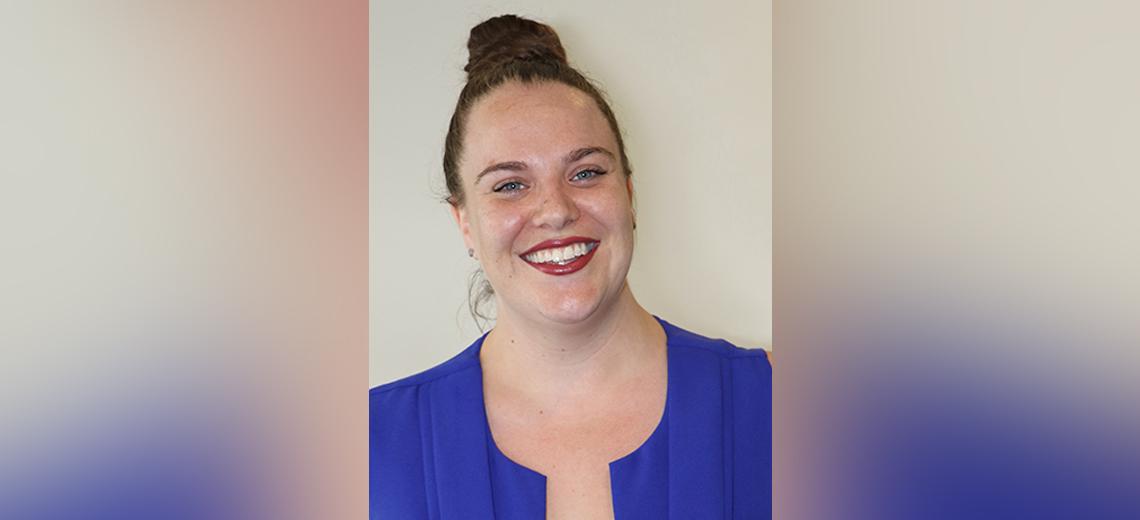
6 minute read
Stress is a normal, expected and necessary part of everyday life. However, studies have found one in five Australians experience either high or very high levels of psychological distress. Even more worryingly, younger Australians, aged 18 to 34 years old, represent about 28 per cent of the country’s collective stress levels.
To unpack some stress-mitigating strategies for university students, we sat down with Megan Mills. She is a mental health and wellbeing professional who is currently the Head of Program Development and Training at Mental Illness Education ACT (MIEACT), a Canberra based mental health and wellbeing education provider.
In this interview, Megan shares her insights on mental health taboos, common wellbeing challenges during the COVID-19 pandemic and tips on how to alleviate them.
Q. What led you to the mental health and wellbeing field?
I initially joined the field after completing a Bachelor of Health Science (Therapeutic Recreation). Over the last 12 years, I have enjoyed learning from experiences in the aged care, disability, trauma specific and front line mental health sectors. Education has always been a passion of mine, and when a role for MIEACT came up, I jumped at the chance to use my experience to help people have open conversations about mental health and wellbeing.
Q. From your experience, what are some of the taboos you have observed related to mental health amongst young people?
We usually find young people consider opening up about mental health concerns or stressors in their life to be taboo, often based on concerns about how they may be judged or misunderstood. People can feel that they are alone in their experiences, when statistics actually show that one in four people will experience a mental health concern at least once in their lifetime, and 75 per cent of health concerns are first experienced between the ages of 14 and 25.
75 per cent of health concerns are first experienced between the ages of 14 and 25.
Q. What are some of the common wellbeing challenges students, both domestic and international, may face during the COVID-19 crisis?
Common challenges we have seen during the pandemic include:
• lessened social connection to family and friends
• communication issues that may exacerbate stress levels
• concerns of our own health as well as those who we know love
• financial stress, especially for students unable to access financial support
• lack of autonomy, that is not being able to choose the strategies you might usually implement to cope with stressors and mental health concerns
• reduced certainty about the future.
Q. How is MIEACT working with other stakeholders to address these problems?
MIEACT is hosting mental health awareness sessions as well as providing specific online resources through ANU Thrive. This will help students identify individual stressors and mental health concerns in themselves and family members, and understand ways to engage in self-care or seek help if and when it may be necessary. Together, with ANU Thrive, we have jointly organised the Stress Better Workshop Series, which will assist university students to identify and cope with various stressors they may encounter in their studies.
Q. With exams approaching, could you list three key tips or techniques that students can use to mitigate such challenges?
Focus on elements you can control: you might not be able to control what is in the exam, but you can control how to best prepare. Preparation is more than study, it is also what you eat, how much sleep you get and how you find ways to remain calm in stressful situations.
Find time to have fun: spend time chasing laughter and reinforcing social connections, even if it is a quick phone call or text exchange.
Rely on your best way forward: understand your unique stress responses and your best way to stay at optimum performance. Strategies might include grounding yourself with nature or exercise, listening to music, meditation, journaling or creative outlets.
The Stress Better workshop series will help you identify and cope with various stressors you may encounter in your studies and in life. Register here for the final two online sessions on Saturday 8 May and Saturday 15 May.
The ANU College of Business and Economics offers an extensive range of specialised programs. Click here for more details.
